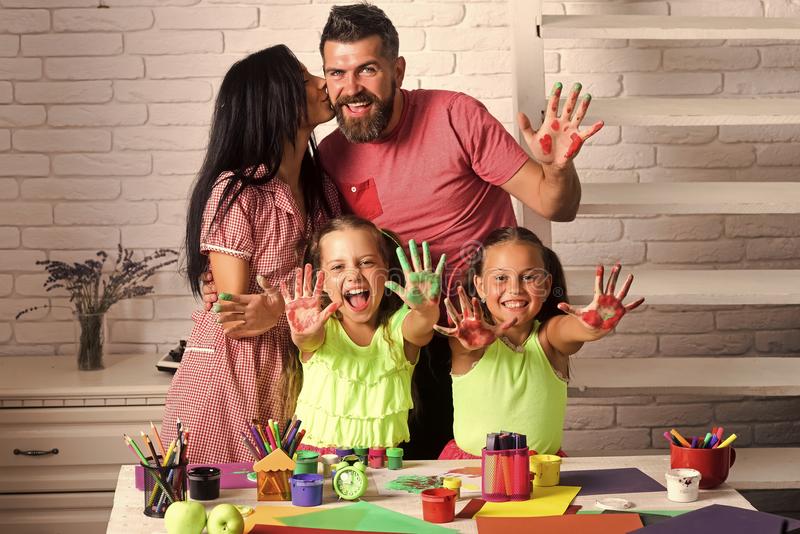Curated by the Knowledge Team of ICS Career GPS
Education

Gen-Z share how they’ll parent differently than their parents – and it’s eye-opening
Excerpts from article by Ryan Schocket, published in buzzfeed.com
“Teenagers, if you ever have kids, what will you do differently compared to your parents?”
Answering this question, posed by a Reddit user, here’s what Gen-Z respondents had to say:
1. Praise and criticise with the same energy
“I will recognise every good thing they do with the same level of enthusiasm as I lay out consequences for their misdeeds. My parents only ever gave me any sort of attention if I was a) misbehaving or b) hurt.” — u/musicallykairi
2. Be aware of addiction cycles that run in the family
“I would show them that they’re loved, and that their emotions and feelings are valid. I also wouldn’t drink/let my partner drink alcohol around them on a daily basis. I don’t drink any alcohol, because I don’t want to continue the addiction cycle that runs in my family.” — u/KCM__
3. Tell my child when a pet dies
“I will tell them immediately if a pet dies. My parents used to hide it away for weeks and go bury them by themselves. It really feels horrible when you don’t even realise they’re dead, and they’re already buried.” — u/limevillain
4. Give them space
“I will give them space and privacy, and always let them know that I will not judge or yell at them for anything they want to tell me.” — u/Philosapphocal
5. Let them join whatever activities they want
“I will let them join in any activities they want. My mom never let me join clubs, take lessons, or bring friends home. I want my kids to have those experiences that I didn’t.” — u/Philosapphocal
6. Loosen up control
“I definitely would not control their life and actions as much as my parents did to me. I would still want to teach them how to be responsible and have good judgement, but I would never control every action of their life.” — u/SirTheodoreTheIII
7. Religious freedom
“I won’t force religion on them.” — u/fakepopa
8. Not just say ‘no’
“Instead of saying ‘Because I say so’ or just ‘no,’ I will try to explain. Communication and honesty are important in any close interaction with someone. If you don’t talk, then things will never work.” — u/chlorineasshole
9. Won’t comment on what they eat
“I won’t comment on what they eat. I developed an eating disorder because of my parents commenting on what I ate — even if my daily intake was around 1,000 calories.” — u/oriolebot299
10. Won’t play favourites
“I won’t constantly talk about one child more than the other. Made me feel really bad when all my parents talked about was my younger brother because he played sports when I was an art kid.” — u/Informal-Assumption
11. Hang out with them
“I’ll spend quality time with them.” — u/ttttnow
12. Talk about crushes
“I won’t make having a crush an embarrassing thing for my child.” — u/ptrue111
13. Teach basic skills
“I will teach them basic life skills like cooking, woodworking, etc.” — u/Bucky16F
14. Encourage healthy self-expression
“I’ll allow them to express themselves and encourage self-expression in whatever way they want as long as it’s healthy, safe, and respectful of others and to themselves.” — u/whendidwestop
15. Admit when I’m wrong
“I would allow them to calmly argue their case to see who is right and who is wrong. And if I’m in the wrong, I would admit it and say sorry, instead of just walking away without apologising or still blaming the situation on them.” — u/Spirited_Otaku4242
Career

Live clutter free: The case for finally cleaning your desk
Excerpts from article by Libby Sander, published in the Harvard Business Review
The physical environment of the workplace has a significant effect on the way we work. When our space is a mess, so are we.
That is certainly true from a simple logistical perspective: we lose precious work minutes every time we go searching for a lost paper on a cluttered desk. The same is true for those of us who have succeeded in becoming paperless at work: one international survey showed that information workers lose up to two hours a week fruitlessly searching for lost digital documents.
But clutter can also affect us in more indirect ways. My research and that of others has shown that our physical environments significantly influence our cognition, emotions, and behaviour, affecting our decision-making and relationships with others.
Cluttered spaces can have negative effects on our stress and anxiety levels, as well as our ability to focus, our eating choices, and even our sleep.
Clutter affects your brain and work
You may think you’re not bothered by your overstuffed filing cabinets or the stacks of paper on your desk. But scientists at the Princeton University Neuroscience Institute have used fMRI and other approaches to show that our brains like order, and that constant visual reminders of disorganisation drain our cognitive resources and reduce our ability to focus. They also found that when participants cleared clutter from their work environment, they were better able to focus and process information, and their productivity increased.
Stress
Clutter can also affect our general mental health, making us feel stressed, anxious, or depressed. Research from the United States in 2009, for instance, found the levels of the stress hormone cortisol were higher in mothers whose home environment was cluttered; elevated cortisol levels sustained over time can lead to anxiety and depression.
Our relationships with others can also be affected by our clutter. In one study, participants with messy desks were perceived to be less conscientious, more neurotic and less agreeable. Such perceptions of an employee are likely to negatively influence the way that others interact with them, and may have negative consequences for their career progression.
What can be done?
Regularly tidying your workspace, rather than letting things accumulate, is the tried and true way to keep the clutter at bay. Avoid letting things get so bad that you start cleaning as a form of procrastination. If you work at home, maintaining a designated workspace can help create a boundary between work items and home items.
Consider instituting a clean-desk policy to govern the tidiness of shared work spaces. Work with your IT team to provide support for employees in the form of tools to manage online documents, as well as clarity on what should be kept and what can be discarded. In doing so, organisations need to strike a balance between practical and security considerations, and keep in mind employees’ need for self-identity and autonomy.
(Disclaimer: The opinions expressed in the article mentioned above are those of the author(s). They do not purport to reflect the opinions or views of ICS Career GPS or its staff.)
Like this post? For more such helpful articles, click on the button below and subscribe FREE to our blog.




